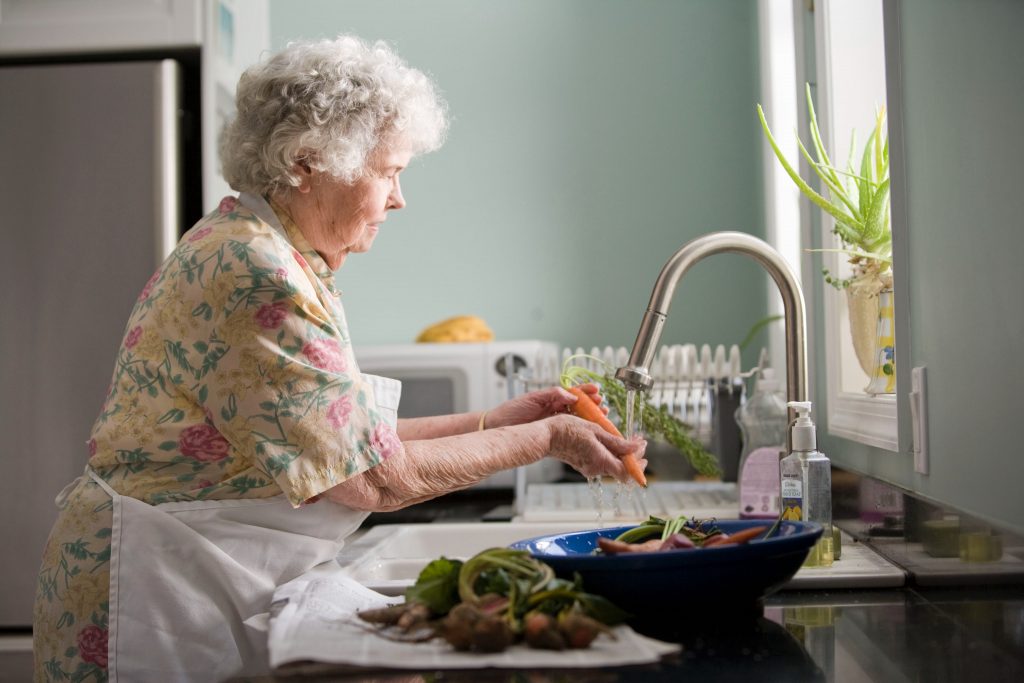Lymphedema in older people: what caregivers should know

Lymphedema in older people.
What is lymphedema?
And why should you care about it as a caregiver?
In today’s post, we will talk about what lyphedema is, how to identify it and how you can care for your loved one who has it.
Lymphedema in older people – what is it?
Lyphedema refers to swelling that occurs in the arms or feet due to a blockage in the lymphatic system.
The lymphatic system is part of your immune system. It is a network of tissues and organs that drain your system of toxins, dead bacterial cells, and other unwanted materials from infectious agents.
Your tonsils and spleen are part of your lymphatic system.
Since your lymphatic system is involved in drainage, you can think of them as pipes taking the waste away.
If for any reason they become blocked, the affected person will retain fluid in their body which then causes the swelling you see in the legs and arms.
In lymphedema, usually only one arm or leg will become swollen. In some instances, both could be swollen as well.
Symptoms of lymphedema
The symptoms of lymphedema include:
- Swollen legs and arms including the fingers and toes. Usually, this happens on one side of the person.
- The affected individual might complain of heaviness in the affected limbs
- Pain or discomfort.
- Restricted range or motion and movement.
- Recurring infections. Your lymphatic system is crucial to your immune system and a blockage here also means your immune system is not clearing infections effectively.
- Thickening and hardening of the skin.
What causes lymphedema?
Lymphedema can happen on its’ own (also called primary lymphedema) or it can happen because of another disease (called secondary lymphedema).
People who are older, overweight or who have undergone treatment for cancer are all at high risk for developing lymphedema.
If it is not properly cared for, lymphedema can lead to life-threatening infections. Another complication of lymphedema is lymphangiosarcoma – a type of cancer that affects soft tissues.
What can you do as a caregiver to support a loved one with lymphedema?
- Encourage them to see their doctor for a treatment plan.
- Encourage your loved one to adhere to the treatment plan so the edema can be resolved or the effects reduced.
- Help your loved one elevate their limbs above the level of their heart when they are sitting down or resting.
- Help your loved one avoid wearing tight-fitting clothing.
- Continue to help your loved one protect themselves from cuts and bruises that could introduce infections.
- Protect their limbs from extreme temperatures (very cold or very hot).
- Assist your loved one with moving around if their movement has been impaired.
- Adhere to safety rules around the house to prevent falls and further injury.
- Continue to provide supportive care. This includes making sure they are comfortable in bed and are eating are balanced nutritious diet.
